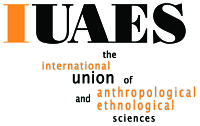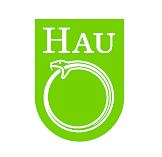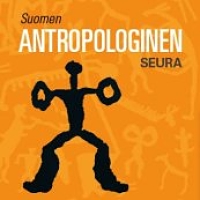Happy new year, Allies! As it is by now the tradition, you will find below a list of exciting upcoming events and calls, not to be missed this year. Of course, there is much more fun to come, including Allegra 2.0 re-launch (with a brand new website) together with a seminar on academic blogging at the Finnish Institute in Berlin next month. In any case, we once more encourage you to send us your memos, if you think an event you organise should feature on this list or if you want to write a short report on a conference or a seminar you attended. Write us at: stuff@allegralaboratory.net. A special thanks to our editorial assistant Andrea Klein for curating this list!
 REMINDER: ASA15: Symbiotic anthropologies: theoretical commensalities and methodological mutualisms
REMINDER: ASA15: Symbiotic anthropologies: theoretical commensalities and methodological mutualisms
13 – 16 April 2015, University of Exeter, UK
REGISTRATION IS OPEN NOW!! The early-bird discounted rate ends on 16 February 2015.
30 September – 3 October 2015, Marburg University, Germany
The recent financial crisis, the Arab Spring, the upheavals in the Ukraine and the tragic fate of refugees on the shores of southern Europe are just a few of the crises that recently have demanded European media attention. In contrast the 2015 German Anthropological Association (GAA) conference will systematically explore and reflect the diversity of crises by asking such questions as: How are crises perceived in various regional and socio-cultural contexts? How are they linked to different ontological, cultural and historical conditions, interpretations and consequences? How do crises take on collective and individual meaning? Which conceptions and perceptions about the world and which practices are confirmed, questioned or considered to be obsolete in the face of crisis? How do new social orders and interpretations emerge? To what extent are current forms of modernity perceived as manifestations of crisis, as symptoms of loss, decay or neo-colonial domination? [more]
Deadline for submission of papers: 15 February 2015
 IUAES Inter-Congress 2015: Re-imagining Anthropological and Sociological Boundaries
IUAES Inter-Congress 2015: Re-imagining Anthropological and Sociological Boundaries
15 – 17 July 2015, Thammasat University, Bangkok, Thailand
We live in an increasingly complex social world. The spread of what some scholars broadly refer to as ‘globalization’ has contributed to this complexity. Identities, networks, and communities have apparently become so fluid, interconnected, and yet diverse, that it is often difficult to negotiate the boundaries between them.
This complexity has arguably rendered conventional categories for the study of human societies inadequate. The usefulness of analytical categories like ‘community, ‘society’, ‘culture’, and even ‘globalization’, is now very debatable. ‘Traditional’ methods of social inquiry themselves have at times revealed obsolete. An increasing number of anthropologists have for instance abandoned single-sited fieldwork for the investigation of certain social phenomena.
A more sensible approach to the study of these phenomena may require tools that belong to disciplines other than anthropology and sociology, like geography, political science, media studies, etc. The investigation of issues that are inevitably entangled in politics additionally requires scholars to take a firm political stance – one that our disciplines often leave us unprepared to take.
Whilst we recognize that anthropology and sociology have always engaged with highly complex – and intrinsically political – social realities, we therefore feel that numerous questions are left unaddressed. The International Union of Anthropological and Ethnological Sciences (IUAES) Inter-Congress 2015 proposes precisely to look into these issues, by encouraging all participants to re-imagine the future of anthropology and sociology – theoretically, methodologically, and politically, within as well as beyond the conventional boundaries of these disciplines. [more]
Deadline for the submission of proposals: 15 February 2015
Conference: Upholding Gendered Peace at a Time of War: Academics and Activists Speak Out on the Shifting Places of Women in the Arab World
2 – 4 June 2015, Beirut, Lebanon
The wars and unrest in the Arab region, the ongoing wars raging presently in Syria, Iraq, Kurdistan, Libya, and on the borders of Lebanon, have proven lethal to women’s rights. Not to mention that the Arab region is witnessing the largest refugee crisis that has affected Lebanon and Jordan to a great extent. Every aspect of this conflict has a fierce gender component built into it. The gender dimension is at the core of both the struggle during armed conflict and the social reconstruction that follows. For that purpose the Institute for Women’s Studies in the Arab World (IWSAW) at the Lebanese American University Beirut is hosting this conference. [more]
Deadline for submission of abstracts: 20 February 2015
20 Years of ETHICOMP: A Celebration
7 – 9 September 2015, De Montfort University, Leicester, UK
In 1995 the first ETHICOMP conference was held in Leicester, England, organised by Terry Bynum and Simon Rogerson. Its purpose was to provide a forum to discuss ethical issues around computers. Twenty years later we are meeting again in Leicester to continue this conversation. The changes in information and communication technology (ICT) during these 20 years have been dramatic. While computers used to be bulky and easily identifiable machines, we now have small smart devices, the internet quickly developed and has changed significantly, and ICT now pervades all walks of life, from the way we work and communicate to study, undertake childcare and choose partners. As a consequence many of the concerns of 1995 have deepened and many new ones have arisen.
During ETHICOMP 2015, the organizers will review ethical and social issues raised by contemporary computing and look at ways of identifying and addressing them in the future. The conference aims to be practically relevant and bring together the various communities involved in the development, implementation, use of computing and reflection on it in its various guises. The conference is based on the belief that the ETHICOMP community, together with other associations and groups, need to work together to enable the benefits of computing to prevail, while rendering its downsides and ethical ambiguities visible and more subject to public debate than is the case today. [more]
Deadline for submission of abstracts: 23 February 2015
 HAU: Journal of Ethnographic Theory
HAU: Journal of Ethnographic Theory
Call for Proposals for Special Issues – 2016 Competition
The editors of HAU: Journal of Ethnographic Theory are delighted to launch an international competition for special issues to be published in 2016. Selected special issues, after publication in the journal, will be made available in paperback by HAU Books, printed and distributed by the University of Chicago Press.
The editors wish to reach out and engage the widest community of scholars working in or from any part of the world to contribute, with groundbreaking work, to the emergence of new ethnographically-inspired theories. HAU welcomes proposals on all topics, especially those which consider: indigenous ontologies and systems of knowledge; forms of human engagement and relationality; cosmology and myth; magic, witchcraft, and sorcery; truth and falsehood; indigenous theories of kinship and relatedness with humans and non-humans; hierarchy; materiality; perception; environment and space; time and temporality; personhood and subjectivity; and alternative metaphysics of morality. [more]
Deadline for submission of proposals: 28 February 2015
UNICONFLICTS in spaces of crisis: Critical approaches in, against and beyond the University
11 – 14 June 2015, Aristotle University of Thessaloniki, Greece
Through this gathering, the organizers aim to create a public space of dialogue transcending divisions among academic and scientific disciplines and to critically approach the urban issues of the era of crisis, through a dialectic, intersectional and postcolonial approach.
The central questions that they wish to raise are two:
- What is the role of knowledge, of the university and of researchers in the era of crisis?
- What are the critical epistemological and methodological tools for studying the spatial expressions of the ongoing crisis at multiple scales?
Within this context, the organizers seek to examine the ongoing crisis not just as an over-accumulation crisis but also as a crisis of social disobedience and of the inability of the circulation of capital, patriarchy and nationalism. Moving against the mystification of the crisis, they are interested in critical approaches that focus on the spatialization of social relations and examine the spaces of dissent. Particularly, they wish to examine the articulations, the limits, the contradictions and the dialectic relation of commons, enclosures, inclusion, exclusion, insurgency and counter-insurgency as well as their hybrid intermediate forms, which emerge in and through physical space, modes of communication and the constitution of communities. Overall, they aim to break the North/South or East/West dichotomies and to focus on the fields of gender, race, class and culture. [more]
Deadline for submission of abstracts: 1 March 2015
 Biennial Conference of the Finnish Anthropological Society 2015
Biennial Conference of the Finnish Anthropological Society 2015
Landscapes, sociality and materiality
21 – 22 October 2015, Helsinki, Finland
Landscape has become a prevalent concept in anthropology in recent years, and it has acquired occasionally contested meanings in discussions across disciplines. Many anthropologists consider that landscape emerges and is perceived in different ways depending on time, place and space. According to this point of view, we can speak of landscape as a contextual social and cultural process defined by time, place and space rather than as an image and an object of the visual gaze. Landscapes can thus be seen as socially constructed mainsprings and mediators of being and belonging, of memories, cosmologies and narratives. Can we then, through landscape, space or place, understand something new about social relations? In what ways are landscapes constructed as wide networks of relations, of various kinds of socialities? And further, how do people’s practices, activities and meaning making processes affect and shape landscapes?
On the other hand, researchers focused on materiality have asked how social relations are enacted and communicated through material things and the use of space and how the chosen medium affects what is being communicated. Others have asked how the material properties of various resources, infrastructures and environments enable and restrict certain social forms. Can we say that certain materialities elicit certain kinds of political formations? Taking these viewpoints even further, can we assume that also objects and environments have something akin to agency? Do these notions further our understanding of social life and the politics associated with it, or – as others have noted – is ascribing agency to non-humans a form of fetishism that displaces politics from sight and curtails our understanding? In this conference the organizers wish to explore these questions and further consider whether these discussions about materiality downplay humanism in social sciences. What is the role of politics and power in studies on landscapes and sociality? [more]
Deadline for submission of papers: 15 March 2015





